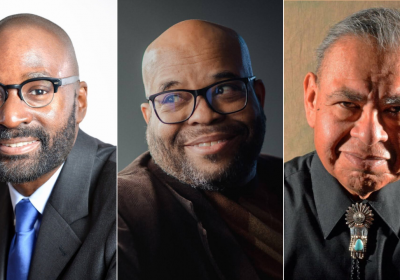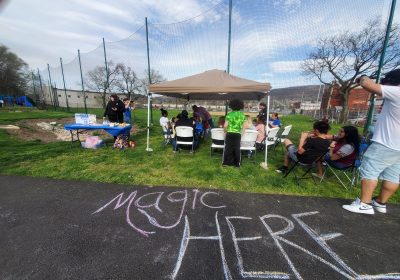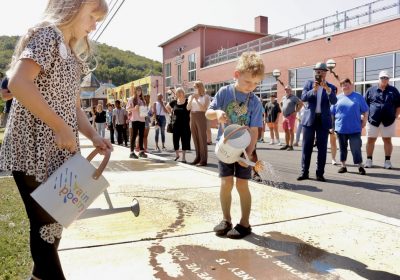Through the PA SHARP (Sustaining the Humanities Through the American Rescue Plan) grant program, PA Humanities awarded 92 organizations from across Pennsylvania a total of $1.4 million in funding to aid in recovery and growth.
The support doesn’t end there.
On Jan. 20, PA Humanities celebrated not only the grantees themselves but also the launch of the Learning Network, a year-long program designed to foster resource sharing, networking, professional development, and mutual support among recipients.
“When we got word that we were getting the SHARP funding and starting to build that opportunity, we said we have to have a Learning Network as a part of this,” senior program officer Jen Danifo told more than 100 participants at a virtual kickoff gathering. “We really hope that this Learning Network will help address the urgent need for the humanities, bring people together who are passionate about the humanities, and really talk about how we recover and find opportunities in the tough couple of years that we’ve had.”
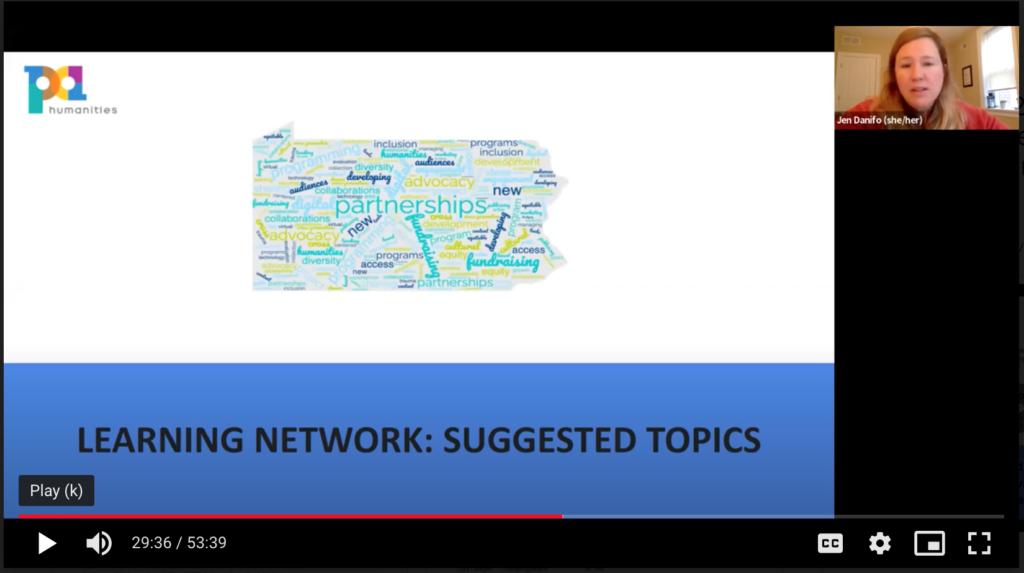
In order to best serve the grantees, PA Humanities asked for feedback on their greatest needs from a Learning Network and four topics came up with almost equal frequency: connecting to new audiences, diversity, equity and inclusion, managing and planning for change, and fundraising and advocacy. The Learning Network will address those topics in a number of different ways. Other topics suggested by the group were: partnerships, collaborations, program development and marketing/promotions.
To begin, PA Humanities will build and curate a resource library that grantees will be able to access at any time. They’ll also create a virtual group for networking and resource and idea-sharing. Finally, PA Humanities will host a series of learning roundtables with grantees grouped by budget size in order to provide more targeted ideas and information. Learning roundtables will meet in March, June, September and November.
“We chose budget size to level the playing field in terms of resources, opportunities and challenges,” Danifo said. “While we learned that the impact of the pandemic is universal, how organizations respond can vary based on context and organizational capacity. We want to be sure we are not biased towards one way of doing things; this will allow us to be hyper-aware of experience and needs and to plan accordingly. Also, the cool thing here is that we will have organizations from across the state meeting and learning about one another.”
Of the 92 grantees, 79 percent have operating budgets under $1.5 million. Twenty-two percent have budgets of under $150,000. The grantees include libraries, cultural organizations, museums, historic sites, universities and others, including those that may not have a humanities-focused mission but are doing humanities-based work. In addition, 21 grantees self-identify as BIPOC-serving or led, and 22 are from rural counties.
“The diversity of perspectives we’ll have engaging in our learning network is exciting,” Danifo said. “We’re hoping that regardless of organization type, size, make-up or mission, (our grantees will) find connections with folks doing humanities work.”

Funding for PA SHARP comes from PA Humanities’ federal partner, the National Endowment for the Humanities (NEH), as part of the American Rescue Plan Act of 2021. Additional funding comes from Spring Point Partners to support 16 organizations that serve Philadelphia’s BIPOC and new immigrant communities.
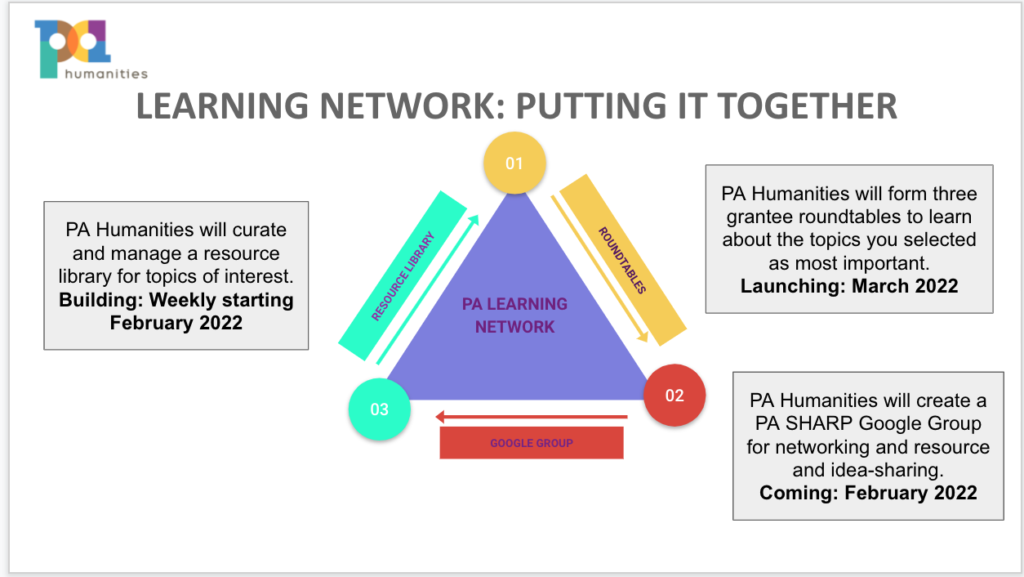
![[color – dark bg] PA SHARP FINAL FILES DB 72dpi [color - dark bg] PA SHARP FINAL FILES DB 72dpi](https://pahumanities.org/uploads/files/elementor/thumbs/color-dark-bg-PA-SHARP-FINAL-FILES-DB-72dpi-phgl7aimtfdpzt2rscvl43ksfv3asbbls19lsvuacw.jpg)
